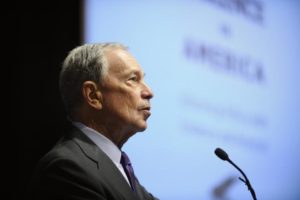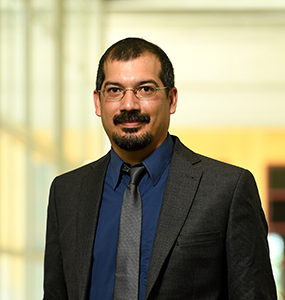 MICHAEL R. BLOOMBERG is the founder of Bloomberg LP, Philanthropist, UN Secretary-General’s Special Envoy for Cities and Climate Change, World Health Organization Global Ambassador for Noncommunicable Diseases, and three-term mayor of New York City.
MICHAEL R. BLOOMBERG is the founder of Bloomberg LP, Philanthropist, UN Secretary-General’s Special Envoy for Cities and Climate Change, World Health Organization Global Ambassador for Noncommunicable Diseases, and three-term mayor of New York City.
He is an entrepreneur and philanthropist who served as mayor of New York City from 2002-2013 after leading the company he started in 1981 for 20 years. Since leaving City Hall, he has resumed leadership of Bloomberg LP.
Bloomberg was elected mayor less than two months after the terrorist attacks of September 11, 2001. Under his leadership, the city rebounded faster and stronger than expected on issues ranging from education to health to economic development.
A lifelong philanthropist, Bloomberg founded Bloomberg Philanthropies, which focuses on five main areas: public health, education, the environment, the arts, and government innovation. He also leads a number of bi-partisan coalitions on urgent issues, including climate change, illegal guns, immigration reform, and infrastructure investment.
Bloomberg graduated from Johns Hopkins University and Harvard Business School.
Held by David Sing
 The Hubble telescope has been particularly critical to DAVID SING’S research and aided in his landmark 2015 comparative study of “hot Jupiters” across 10 different solar systems. He’s now heading up the largest Hubble research program on exoplanets, comparing 20 exoplanets across a range of wavelengths—from ultraviolet to infrared.
The Hubble telescope has been particularly critical to DAVID SING’S research and aided in his landmark 2015 comparative study of “hot Jupiters” across 10 different solar systems. He’s now heading up the largest Hubble research program on exoplanets, comparing 20 exoplanets across a range of wavelengths—from ultraviolet to infrared.
Sing’s new post as Bloomberg Distinguished Professor at Johns Hopkins brings him closer to the Hubble, whose operations center is based in the nearby Space Telescope Science Institute. He expects to work closely with data from James Webb Telescope, which is set to launch into space in a few years.
Sing first honed in on exoplanets as a post-doc, at the University of Arizona and then the Institut d’Astrophysique de Paris. In 2010, he joined the University of Exeter, where he became an associate professor of astrophysics, working within its Extrasolar Planets Team.
Over time Sing has become known for his state-of-the-art observations of transits—when exoplanets pass in front of their host star—and eclipses. Both methods can yield a plethora of details on the planet’s composition, temperature, and atmospheric structure. With transits, he has developed a special interest in transmission spectroscopy, studying absorption signals within an exoplanet’s atmosphere.
Even before Sing devoted his career to outer space, it was a lifelong passion, he says. Growing up in Helena, Montana, he dreamed of being an astronaut. In high school, he worked out funds from his science club to build a telescope for viewing the Comet Shumaker-Levy’s collision with Jupiter. “I was hooked,” Sing says.
At the University of Arizona, Sing studied physics for his bachelor’s and doctorate degrees. At the time he was already connected to Johns Hopkins, using its FUSE satellite for his PhD thesis on binary star systems.
 MICHAEL R. BLOOMBERG is the founder of Bloomberg LP, Philanthropist, UN Secretary-General’s Special Envoy for Cities and Climate Change, World Health Organization Global Ambassador for Noncommunicable Diseases, and three-term mayor of New York City.
MICHAEL R. BLOOMBERG is the founder of Bloomberg LP, Philanthropist, UN Secretary-General’s Special Envoy for Cities and Climate Change, World Health Organization Global Ambassador for Noncommunicable Diseases, and three-term mayor of New York City. The Hubble telescope has been particularly critical to DAVID SING’S research and aided in his
The Hubble telescope has been particularly critical to DAVID SING’S research and aided in his